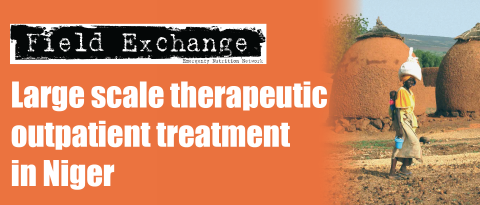Experience-based measure of household food insecurity
Summary of published research1

A woman working in one of the village households in Burkino Faso
In a recent programme implemented by Africare and the nutritional science division of Cornell University, qualitative and quantitative methods were used to develop and validate an experienced-based measure of the access component of food insecurity in northern Burkina Faso. The project location was Zondoma province where there has been a Title 11 food aid-funded development province since 2000. In-depth interviews on food insecurity were conducted with ten household heads and 26 women using interview guides. Africare identified themes, classified households, created a table of food insecurity categories, identified items to add to or delete from an initial questionnaire, and developed and revised answer choices.
The experience-based questions asked ranged from "does your household eat until satisfied right now?" to "how many times in a month can you afford the following foods for household members?" There were also many very subjective questions, e.g. "do concerns about lack of food cause you insomnia?"
A longitudinal study conducted in parallel provided quantitative data on changes over time in household food insecurity, the economic situation and related factors. Data were collected on 126 simple and complex households from nine villages every January and July from 2001 to 2003 (five waves). These data allowed examination of changes in household food insecurity twice annually across the best and worst seasons for food, and evaluation of the ability of the experience- based measure to differentiate changes in household food insecurity.
Validity was assessed by examining reliability and by comparing the experiencedbased food insecurity measure with economic status, dietary and anthropometric measures, and a measure created by an observer who rated the households' food insecurity. The results provide strong evidence that the food insecurity score, calculated from experience- based questionnaire items, was valid for determining seasonal differences in household food insecurity, differences among households in food insecurity at a given time and changes in household food insecurity over time in northern rural Burkina Faso.
1Frongillo A and Nanama S (2006). Development and Validation of an Experience-Based Measure of Household Food Insecurity within and across Seasons in Northern Burkina Faso. J. Nutr. 2006 136: 1409S-1419S.
Imported from FEX website


